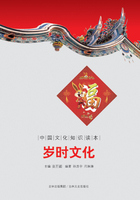This common responsibility for the taxes was abolished in 1903 by the Emperor, on the advice of M. Witte, and the other Communal fetters are being gradually relaxed. A peasant may now, if he wishes, cease to be a member of the Commune altogether, as soon as he has defrayed all his outstanding obligations.
*With the recent relaxing of the Communal fetters, referred to in the foregoing note, this abuse should disappear.
In all countries the theory of government and administration differs considerably from the actual practice. Nowhere is this difference greater than in Russia, and in no Russian institution is it greater than in the Village Commune. It is necessary, therefore, to know both theory and practice; and it is well to begin with the former, because it is the simpler of the two. When we have once thoroughly mastered the theory, it is easy to understand the deviations that are made to suit peculiar local conditions.
According, then, to theory, all male peasants in every part of the Empire are inscribed in census-lists, which form the basis of the direct taxation. These lists are revised at irregular intervals, and all males alive at the time of the "revision," from the newborn babe to the centenarian, are duly inscribed. Each Commune has a list of this kind, and pays to the Government an annual sum proportionate to the number of names which the list contains, or, in popular language, according to the number of "revision souls."
During the intervals between the revisions the financial authorities take no notice of the births and deaths. A Commune which has a hundred male members at the time of the revision may have in a few years considerably more or considerably less than that number, but it has to pay taxes for a hundred members all the same until a new revision is made for the whole Empire.
Now in Russia, so far at least as the rural population is concerned, the payment of taxes is inseparably connected with the possession of land. Every peasant who pays taxes is supposed to have a share of the land belonging to the Commune. If the Communal revision lists contain a hundred names, the Communal land ought to be divided into a hundred shares, and each "revision soul" should enjoy his share in return for the taxes which he pays.
The reader who has followed my explanations up to this point may naturally conclude that the taxes paid by the peasants are in reality a species of rent for the land which they enjoy. Such a conclusion would not be altogether justified. When a man rents a bit of land he acts according to his own judgment, and makes a voluntary contract with the proprietor; but the Russian peasant is obliged to pay his taxes whether he desires to enjoy land or not.
The theory, therefore, that the taxes are simply the rent of the land will not bear even superficial examination. Equally untenable is the theory that they are a species of land-tax. In any reasonable system of land-dues the yearly sum imposed bears some kind of proportion to the quantity and quality of the land enjoyed;
but in Russia it may be that the members of one Commune possess six acres of bad land, and the members of the neighbouring Commune seven acres of good land, and yet the taxes in both cases are the same. The truth is that the taxes are personal, and are calculated according to the number of male "souls," and the Government does not take the trouble to inquire how the Communal land is distributed. The Commune has to pay into the Imperial Treasury a fixed yearly sum, according to the number of its "revision souls,"
and distributes the land among its members as it thinks fit.
How, then, does the Commune distribute the land? To this question it is impossible to reply in brief, general terms, because each Commune acts as it pleases! Some act strictly according to the theory. These divide their land at the time of the revision into a number of portions or shares corresponding to the number of revision souls, and give to each family a number of shares corresponding to the number of revision souls which it contains.
This is from the administrative point of view by far the simplest system. The census-list determines how much land each family will enjoy, and the existing tenures are disturbed only by the revisions which take place at irregular intervals.* But, on the other hand, this system has serious defects. The revision-list represents merely the numerical strength of the families, and the numerical strength is often not at all in proportion to the working power.
Let us suppose, for example, two families, each containing at the time of the revision five male members. According to the census-
list these two families are equal, and ought to receive equal shares of the land; but in reality it may happen that the one contains a father in the prime of life and four able-bodies sons, whilst the other contains a widow and five little boys. The wants and working power of these two families are of course very different; and if the above system of distribution be applied, the man with four sons and a goodly supply of grandchildren will probably find that he has too little land, whilst the widow with her five little boys will find it difficult to cultivate the five shares alloted to her, and utterly impossible to pay the corresponding amount of taxation--for in all cases, it must be remembered, the Communal burdens are distributed in the same proportion as the land.
A long list of the various systems of allotment to be found in individual Communes in different parts of the country is given in the opening chapter of a valuable work by Karelin, entitled "Obshtchinnoye Vladyenie v Rossii" (St. Petersburg, 1893). As my object is to convey to the reader merely a general idea of the institution, I refrain from confusing him by an enumeration of the endless divergencies from the original type.
*Since 1719 eleven revisions have been made, the last in 1897.
The intervals varied from six to forty-one years.















